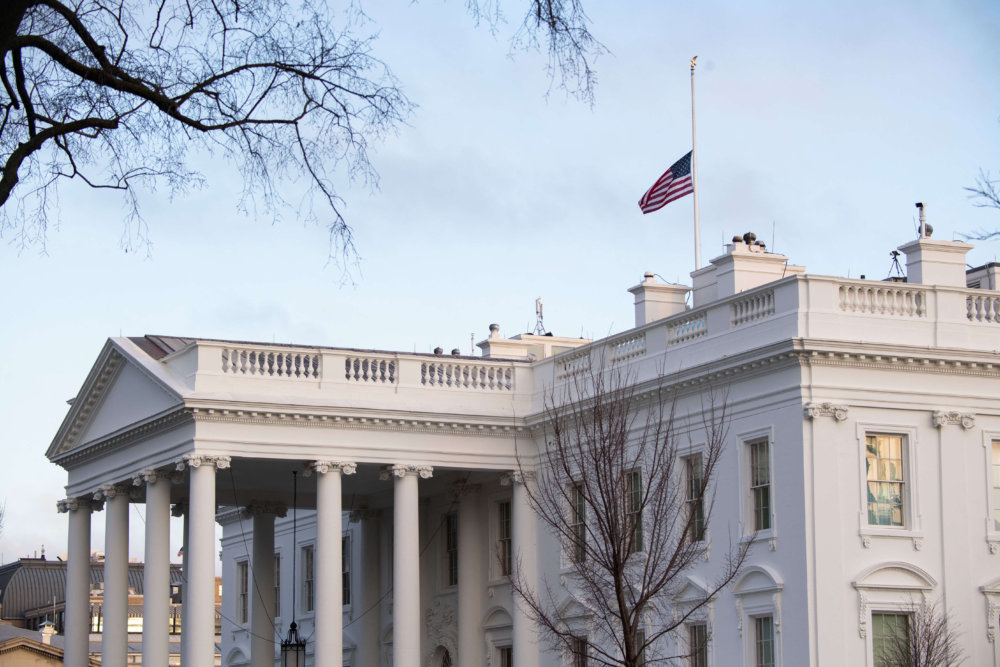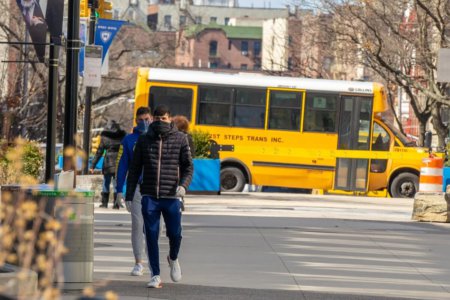
A group of 18 international students has filed a class-action lawsuit in Ohio against the United States Citizenship and Immigration Services (USCIS) and United States Immigration and Customs Enforcement (ICE) over the delay of their Optional Practical Training (OPT) application. They aim to compel USCIS to address the OPT delay by processing applications on a “timely basis” as they are all on F-1 visas, and risk losing their legal status during prolonged waiting periods.
Lawyer Robert Cohen from Porter Wright Morris & Arthur LLP explained, “These students followed the law and timely applied for permission to stay in the US after completion of their formal studies, for the purpose of completing a 12-month period of post-graduate OPT or an additional 24-month period based upon the OPT STEM extension.”

The American flag is seen at half staff over the White House in Washington, DC, February 22, 2021, in honour of the 500,000 lives lost to coronavirus in the United States. Source: Saul Loeb/AFP
USCIS issues update in response to concerns
USCIS clarified on February 18 that the OPT delay can be traced to certain lockboxes, which are not issuing notices when they receive Form I-765 from students. “We will not reject applications solely because they were filed at the lockbox address in use prior to the change to the filing address instructions announced on Jan. 8, 2021,” USCIS said.
In January, USCIS stated that the COVID-19 restrictions caused “an increase in filings, current postal service volume and other external factors” and as a domino effect, students may experience a delay of four to six weeks in receiving their receipt notice after properly filing an application or petition with a USCIS lockbox. “These delays will not affect the receipt date which is determined pursuant to 8 C.F.R. 103.2(a)(7). Delays may vary among form types and lockbox locations,” read a Lockbox Updates news alert.
USCIS maintains that students need not worry about exceeding their OPT period while their application is being processed. Official guidelines state that anyone who has filed Form I-765 for OPT will automatically have their employment authorisation extended for 180 days if their permit expires.
How does the lawsuit address OPT delay?
Nevertheless, the OPT delay has created a risky situation for students. Those who lapse their F-1 status have no legal claim to job offers, income, and insurance in the US. Cohen said they could even lose out on the opportunity to resubmit the OPT application if the first application is rejected.
“These problems become multiplied because the students also risk the threat of removal. This lawsuit seeks to mitigate the harm to the students resulting from the delay, which was solely in the control of USCIS,” he elaborated.
The Ohio lawsuit seeks to allow students whose grace period expired to remain in F-1 status for up to 14 days after their application is judged. Besides that, it calls for the USCIS to issue a Request of Evidence instead of rejecting applications for technical errors. Further, USCIS must accept applications that are corrected within 50 days of the initial rejection date.










